State Government taking nurses union to court to stop industrial action after crisis talks collapse
THE State Government has begun legal action against the nurses union to stop industrial action after crisis talks to solve the emergency-room problem collapsed.
WHAT THE KEY PLAYERS ARE SAYING:
Minister: Stop making threats and work with us
Nurses: Minister must open up more beds
Medics: We need genuine leadership to solve crisis
Ambulance staff: System wants a circuit breaker — and solutions
- Nurses warned over industrial disruption
- Flinders Medical Centre gastro outbreak
THE State Government has begun legal action against the nurses union to stop industrial action after crisis talks to solve the emergency-room problem collapsed.
An application was lodged on Friday with the South Australian Employment Tribunal as Health Minister Stephen Wade warned that any action “would be a threat to patient safety”.
Health unions representing nurses, doctors and ambos are seeking 50 extra beds across the system to ease pressure on metropolitan emergency departments.
In opening Friday’s meeting, Mr Wade maintained the department had acted on suggestions made at a crisis meeting a fortnight ago.
He said that 30 beds had been opened in country hospitals and 46 patients had been moved from metropolitan hospitals into those beds.
In addition, Mr Wade said the department agreed to open 20 private hospital beds to assist hospitals to cope with high demand.
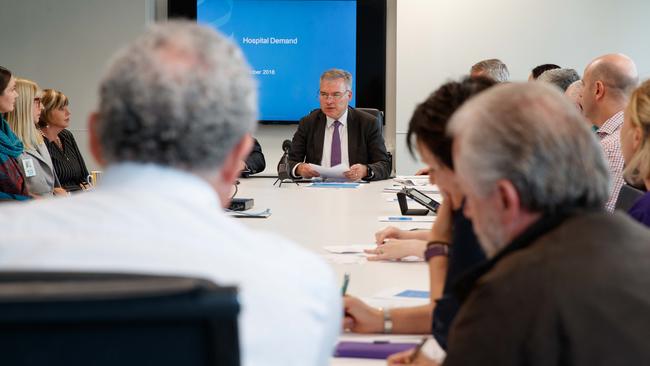
Mr Wade also said discussions had begun with the Attorney-General’s Department to establish a Court Diversion Service for forensic mental health patients that could free up the equivalent of 3.6 beds a day in the hospital network.
But a “failure” to agree on the terms set out by the unions — namely commitments from the minister to open 50 extra metropolitan beds and to keep existing “winter beds” open — has kept the action going.
Australian Nursing and Midwifery Federation (SA Branch) CEO Elizabeth Dabars said Mr Wade would not commit to keeping winter beds open at Hampstead Rehabilitation Centre in addition to existing beds at Highgate Park and St Margaret’s Hospital.
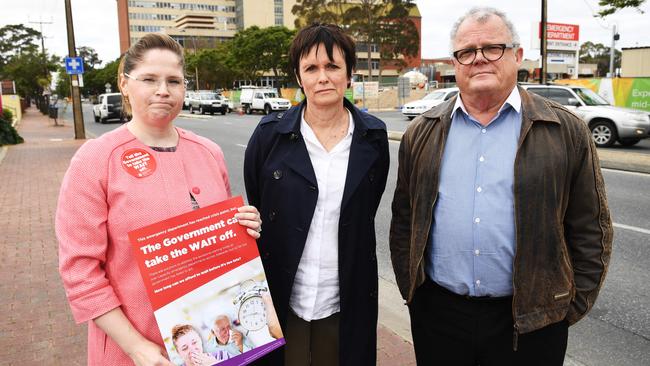
“If the minister had been able to commit to providing the additional beds we need, we believe this would have make a real difference to improving patient flow through our emergency departments,’’ she said.
“We are fully aware this Government is not responsible for the chronic overcrowding that has been escalating over the past 18 months, but we had expected the minister to step up and act on a temporary solution.”
Strike action includes rolling stopworks and cancellation of elective admissions.
Stop making threats and work with us
Health Minister — Stephen Wade
TWO weeks ago, I brought together a range of stakeholders to look at strategies to get our hospital system working better. We listened and we have acted.
Since that meeting, I have announced two short-term measures to ease pressure during this time of peak demand. Thirty beds have been made available in country hospitals. We’ve also started transferring patients to private hospitals — 20 beds have been made available there.
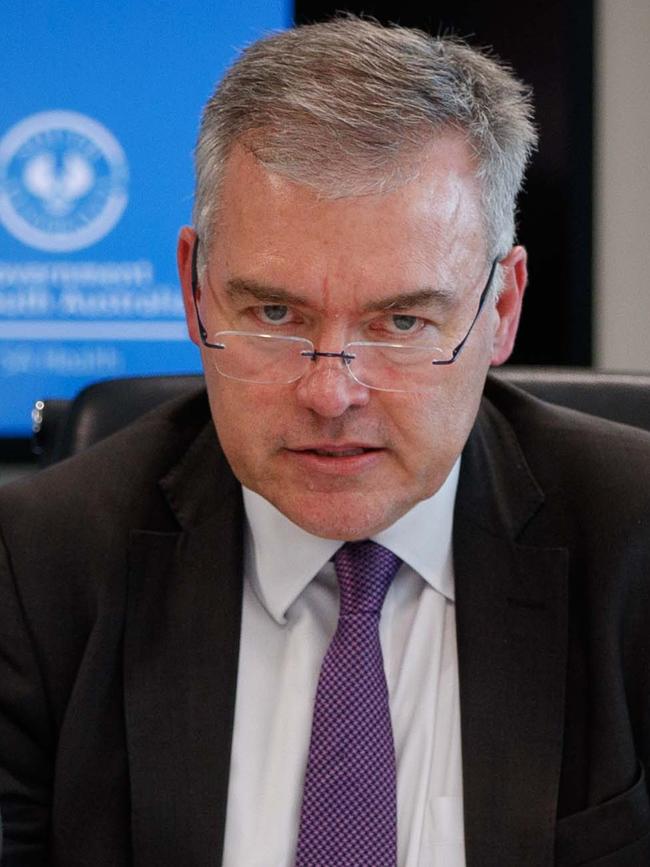
We are reactivating the Repat which will help ease the pressure. The Repat beds can’t come online quickly. The country and private beds are available now. The Labor Government closed the Repat. We didn’t have the nurses’ union taking industrial action back then. I’m calling on the ANMF to withdraw its threat of industrial action.
According to clinicians, this action would put patients at risk. Patients must be our No. 1 priority. That’s why we’re taking the ANMF to the Employment Tribunal. We implore the ANMF to work with us in good faith, to find solutions to ease the pressure on our hospitals.
We have instituted strong action to try to correct the mess we have been left by the previous Labor Government.
We are working urgently to try to resolve the magnitude of issues in our hospital system. But the changes that are needed will not happen overnight.
Clinicians and government need to work together to deliver long term change — that’s what we are committed to. Industrial action diverts energy from where it needs to be — delivering better outcomes for patients.
Minister must open up more beds
Elizabeth Dabars, Australian Nursing and Midwifery Federation SA branch secretary
THERE can be no real resolution of the pressures on metropolitan emergency departments without the creation of additional immediate capacity for ongoing care and treatment within our hospitals.
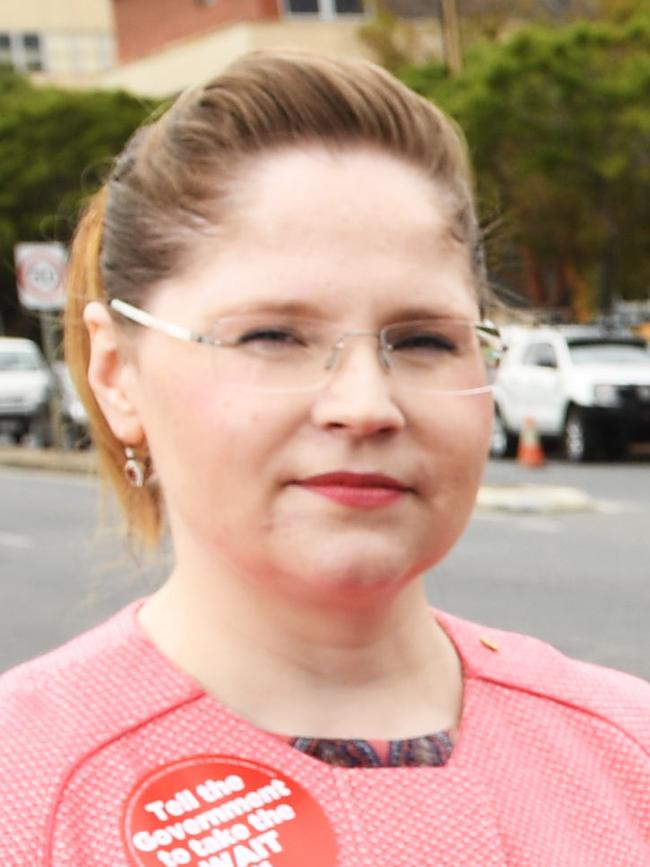
The fundamental problem is that inpatient units are under severe capacity pressures and are unable (at most sites) to “pull” patients from emergency departments.
Many of these issues have been known for some time. There has been general acceptance or at least acknowledgment of them, although there have been no specific plans to address the issues and monitor their impact. Until now.
Since nurses began escalating action, the Minister has made a raft of announcements to start to address the issue and — even though they don’t yet add up to the circuit-breaker our system so desperately needs — the community is better off as a result.
We are advocating for 50 extra metro beds to be opened, as well as a commitment from the Minister that the current winter strategy beds — such as those at Hampstead Rehabilitation Centre in addition to existing beds at Highgate Park and St Margaret’s Hospital — will remain open until the Government can identify longer-term solutions to overcrowding.
And while we appreciate there is work to be done in recruiting a suitable workforce, we also seek a commitment from the Government to open an additional 20 mental health beds.
We need genuine leadership to solve crisis
Bernadette Mulholland, SASMOA senior industrial officer
TRANSFORMING Health has caused major damage to the South Australian healthcare system. There has been no acknowledgment by the previous Government of the damage done, or real leadership to fix it.
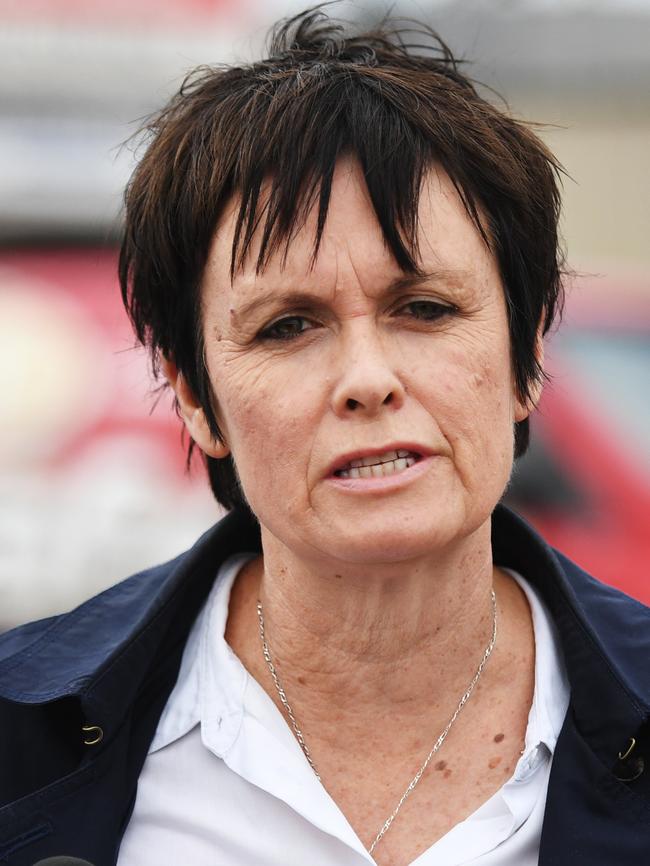
Some of the architects of Transforming Health and loud supporters remain within our health system, unrepentant but silenced for now. A brazen Opposition taunts and criticises the new Government for not fixing their health mess.
Ambulance ramping, Emergency Department and hospital overcrowding, plus a lack of mental health beds are hampering doctors from providing safe care for their patients.
Both immediate and long-term solutions are needed to manage this crisis.
We need more than additional beds.
Ending the increasingly lengthy wait times in ambulances and Emergency Departments must be an absolute priority.
Additional acute mental health beds will make a positive difference.
Opening transitional beds for NDIS patients languishing in hospital beds will make a positive difference.
Developing effective treatment pathways for patients suffering from drug and alcohol related illnesses will make a positive difference.
Patients deserve to receive the care they need, when they need it most.
Doctors are seeking genuine reassurance from this new Government that history won't be repeated. The healthcare system cannot withstand further cuts and mismanagement. The damage must be fixed.
The community and healthcare workers need to have trust and confidence in the leadership of our most important asset — our public health system.
While we work together to develop a long-term strategy to fix these complex issues, the community must not suffer.
System wants a circuit breaker — and solutions
Phil Palmer, AEA SA secretary
THE Ambulance Employees Association has been agitating all this year for a health system-wide meeting.
This happened at the end of September and involved the SA Salaried Medical Officers Association and Australian Nursing Federation, the Minister, the Local Health Networks, the college of emergency physicians, Health Department, and Professor Chris Baggoley to discuss ED overcrowding/ramping.
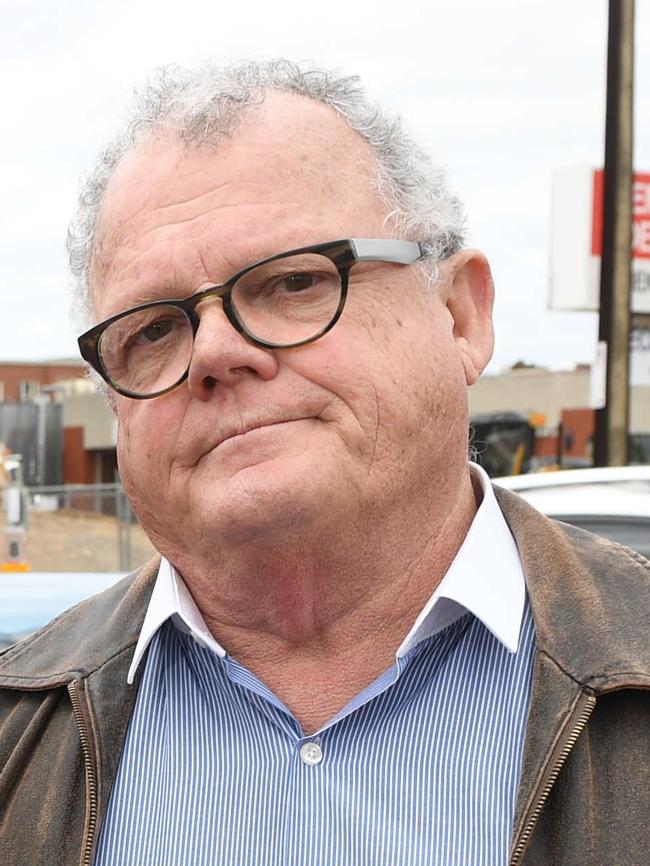
The meeting went for two hours — not enough time to discuss all that needed to be discussed — but it is accurate to say they was consensus among all participants about what needs to be done.
There was lots of common ground. Most of the solutions supported need a long lead time to take effect, so the unions insisted that we needed a “circuit-breaker”, a quick initiative that would provide some respite in the short term.
All three unions proposed opening beds at the Repat Hospital, and all three clearly stated that without a decent circuit breaker, there would be no choice but to publicly campaign to support our cause. There are at least 100 patients occupying Acute Beds who are post (or sub) acute. These patients need care but not acute care, so do not need to be in the major hospitals. The majority of these patients have disabilities that require modifications to where they live, but due to a gap in the funding between the old Disability scheme and the NDIS, those modifications cannot be made until (at least) the end of the year.
We are not saying extra beds is the sole solution, far from it, but more capacity is certainly part of it.
On the presumption that the Government may not deliver enough extra beds, the AEA State Council approved, and budgeted for, an escalation in the Stop Ramping campaign.
Unfortunately, the Government has promised only 30 extra beds, well short of the number needed; so they fell at the first hurdle. It is accepted that these problems are not of the Liberal Government’s making, but they did attack the previous Government for the debacle and promised to clean up the mess.
They need to deliver, it is unsafe to hesitate. The minister has promised 30 extra beds in peri-urban hospitals. It is really not much more than the winter demand plan. They need to provide another 30 -70 beds to have real impact.
